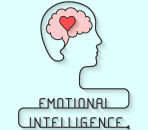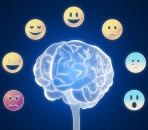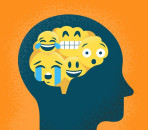Emotional Intelligence Test > Take Quiz With Printable Results
New Updates



Take Online Emotional Intelligence Test
Get StartedDiscover Your Emotional Intelligence Level: Take Free Online EQ Test!
Understanding emotional intelligence is essential for personal development and fostering meaningful relationships. With an EQ emotional intelligence test, individuals can gain valuable insights into their capacity for empathy, self-awareness, and emotional regulation. A holistic approach to character and interpersonal dynamics is offered by this exploration of human psychology, transcending the bounds of traditional intelligence. Within this realm, one might find themselves inclined to test EQ for free, a unique opportunity that can shed light on various emotional competencies and the way they impact our daily interactions and decision-making processes. This testing can provide valuable insights, fostering personal growth and improved communication skills.
What Is an EQ Test?
An EQ test, or Emotional Quotient test, is a tool used to measure a person's emotional intelligence. Unlike an IQ test that measures cognitive abilities, an EQ test evaluates your ability to perceive, control, and evaluate emotions. With an EQ test online, individuals can discover their emotional competency levels in real-time. The pioneer in emotional intelligence, Daniel Goleman, emphasizes the relevance of EQ in predicting personal and professional success.
The test typically includes a variety of questions or tasks that assess emotional understanding and empathy. It allows individuals to identify areas of strength and those that may need improvement. Taking a Goleman EQ test offers a structured approach to exploring these critical skills.

Benefits of Taking Emotional Intelligence Tests
- Improved self-awareness and understanding of emotional triggers.
- Enhanced empathy and relationship-building skills.
- Better stress management and resilience in challenging situations.
- Increased emotional regulation and decision-making abilities.
Exploring Free Tests Online
Accessing an EQ test online for free is now easier than ever, with numerous platforms offering these assessments. These tests provide comprehensive insights into how a person scores on various dimensions of emotional intelligence. Often, the tests include interactive sections that make the process engaging and easy to understand. The convenience of an EQ free online test means individuals can participate at their own pace without any pressure. Additionally, results are usually immediate, allowing users to quickly identify areas for personal growth or improvement.
Features of Online Emotional Intelligence Tests
- Access to detailed feedback on performance and areas for improvement.
- Interactive and user-friendly interfaces for easy navigation.
- Multidimensional scoring across different emotional domains.
- Insights into personal and professional relationship management.
Comparing Popular Tests
| Test Name | Focus Area | Availability |
|---|---|---|
| Daniel Goleman Test | Workplace dynamics, leadership | In-depth versions available online |
| Buss-Perry Aggression Questionnaire | Aggression and stress response | Available for EQ test for free online |
| Bar-On Model | General emotional intelligence | Various free EQ test options online |
How to Get Accurate Results
When participating in an EQ assessment test, honesty is crucial for obtaining accurate results. Users should approach the test with an open mind and focus on genuine self-reflection. By doing so, participants ensure that the results reflect their true emotional strengths and areas needing development.
Furthermore, repeating the assessment periodically can track improvement over time. Understanding feedback from an EQ test with results helps set specific goals for personal and emotional growth.
Tips for Improving Emotional Intelligence
- Regular practice of mindfulness and reflection.
- Engaging in active listening and open communication.
- Seeking feedback from peers and loved ones.
- Continuing education on emotional literacy and regulation techniques.
Take Online Emotional Intelligence Test
Get StartedFAQ About EQ Test Online
-
What is an EQ intelligence test?
An EQ intelligence test, also known as an emotional intelligence (EQ) test, measures your ability to recognize, understand, and manage your emotions, as well as those of others. It evaluates key components like self-awareness, empathy, social skills, and emotional regulation.
-
How does the emotional intelligence (EQ) test work?
The test typically includes a series of questions or scenarios that assess how you react emotionally and socially in various situations. After completing the EQ test, you'll receive a breakdown of your scores across different emotional intelligence categories, helping you identify strengths and areas for improvement.
-
Can I download the EQ test in PDF format?
Yes! Our tool allows you to download your EQ test results in PDF format for easy sharing, printing, or personal reference. This makes it convenient to review your emotional intelligence assessment anytime.
-
Who should take the EQ test emotional intelligence assessment?
Anyone can benefit from an EQ test—whether you're a professional looking to improve workplace relationships, a student working on self-development, or simply curious about your emotional strengths. It’s especially useful for team leaders, HR professionals, and those in client-facing roles.
-
Is this EQ test scientifically valid?
Our EQ test emotional intelligence assessment is based on widely accepted emotional intelligence theories and frameworks. While it's a helpful tool for personal insight, it’s not a clinical diagnosis. For in-depth evaluation, consulting with a psychologist is recommended.
 Explore the Benefits of Taking an EQ Test
Explore the Benefits of Taking an EQ Test
